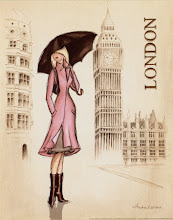If I'm correct in my thinking, the aim of philosophy is to spawn thought-provoking and captivating credos; and the aim and fascination of our existence, as seemingly insignificant beings, is to remain forever curious of the supposed bodies and entities surrounding us, perpetually pursuing new theories to answer the ever popular "Who, what, when, where, and why" series. Personally, I believe that experience is the ultimate source for the construction of reality; every individual conceptualizes their own theories through their five senses--what they feel, see, hear, taste, and smell-- and through what they are told from others.
Although it is ultimately true in it's breakdown that each individual is responsible for their own thinking (von Glasersfeld), I also find it to be true that people will inevitably be influenced by others—friends and family, society, media, culture, religion—there will always be outside forces seducing us towards alternate conjectures. It is accurate to believe that two people can hold similar views on certain topics, but no two individuals will ever hold perfectly identical outlooks on the multitudinous perceptions and conceptions of life.
I’d like to recall a story (or if I may call it riddle of a sort, relating to von Glasersfeld's speculations on apples, which i mention in Q&A #2) that I discovered a few weeks ago: In a first-grade classroom, a teacher holds up an apple and asks the children to describe the characteristics of apples. Most of the children say they are red or yellow or green, sweet or bitter, smooth and shiny; one little boy, however, proclaims that they are white. The teacher and all of the students declare that they have never seen a white apple. The boy, adamant in his statement, however, refuses to be swayed. When pushed to explain where he’s seen such an apple, the boy picks up the teacher’s apple, takes a bite and holds up the white inside to the class…”See! It’s white!”
We can never prove that anything, in reality, actually exists the way we perceive it. For all we know, the way in which we just perceived something as we saw, heard, felt, taste, or felt it, could be utterly opposing to the next person to come along. Or, from another viewpoint, that which we just observed could vanish (cease to exist) as we know it, the instant we turn our back. As pointed out on the first day of class, how do we know if the back of a door really exists if there is no object there to perceive it? Or, how do we know that when we shut the closet door, if our shoes remain there or enter into some noumenal alternate universe?
To synopsize my proposition, the actuality of “real” objects and knowledge, in essence, is only an invented understanding of our individual and communal conceptions and perceptions through an experienced existence.

1 comment:
In my view, our thoughts of objects are inventions, but the objects themselves are not and supply, in fact, the best explanation of our thoughts and experience of those objects.
Post a Comment